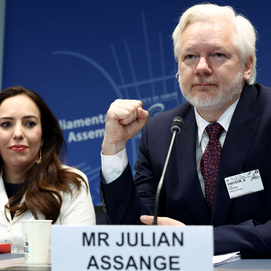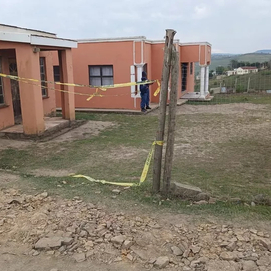Despite US calls to avert a ground offensive in Lebanon, Israel has begun "targeted" raids on the country -- more proof that Washington has been unable to rein in its ally, amid fears of a wider Middle East conflict.
The US president indicated Monday that he was opposed to Israeli ground operations in Lebanon, calling for a ceasefire as tensions spiralled after the assassination of Hezbollah leader Hassan Nasrallah.
"I'm more aware than you might know and I'm comfortable with them stopping. We should have a ceasefire now," Biden told reporters when asked if he was aware of Israeli plans for a limited operation on Lebanese soil.
A few hours later, State Department spokesman Matthew Miller said Israel had informed Washington that it was currently conducting "limited operations targeting Hezbollah infrastructure near the border."
And the Israeli military confirmed early Tuesday that it had indeed launched "ground raids" on villages in southern Lebanon.
It felt like deja vu all over again.
Every time the United States calls for a negotiated solution or a ceasefire, Israeli Prime Minister Benjamin Netanyahu seems to respond by ramping up his military offensive.
Last week, with the ink barely dry on a joint US-French statement on the sidelines of a top-level UN summit for a three-week ceasefire between Israel and Hezbollah, Netanyahu announced fresh air strikes against the Iran-backed militant group the very next day.
"The Biden administration has largely been a bystander to these events -- one that has supplied Israel with the military means to conduct these operations but has been repeatedly caught by surprise by its actions," wrote Brian Katulis, a senior fellow for US foreign policy at the Middle East Institute.
On Friday at the United Nations, the contrast was jarring: as Netanyahu authorized a strike against Nasrallah, risking a broader regional conflict, US Secretary of State Antony Blinken again called for all sides to choose diplomacy.
"The question is not, does Israel have a right to deal with existential threats to its security and enemies across its borders with the avowed intent to destroy Israel? Of course it does.
"But the question is what is the best way to achieve its objectives," Blinken said, echoing the US position expressed shortly after Hamas attacked Israel on October 7 last year.
- Israel seeks to capitalize -
Of course, there are no tears in Washington over Nasrallah's demise. Blinken called him a "brutal terrorist" on Monday.
But the United States has been at pains to say it was neither consulted nor aware of Israel's plans to target him ahead of time.
It made a similar statement after Hamas leader Ismail Haniyeh was killed in Iran in late July in an attack blamed on Israel.
Now, Israel clearly appears to be seeking to capitalize on its position, having done significant damage to Hezbollah in a series of attacks, and sending Hamas reeling in Gaza, diplomats say.
Washington meanwhile is still hoping that diplomacy will prevail, both in Gaza and Lebanon.
Diplomacy remains "the best and only path to achieving greater stability in the Middle East," and Washington is "committed to urgently driving these efforts forward," Blinken said Monday.
Blinken spoke Sunday with his French counterpart Jean-Noel Barrot, who called on Israel to avoid any ground operation -- a call that apparently went unheeded.
The US secretary of state also talked to Britain's David Lammy on Monday, and held talks with counterparts from Arab states on the sidelines of a ministerial meeting in Washington of the international coalition battling the Islamic State group.
Aides to Blinken have long insisted that Washington respects Israel's sovereignty, and tacitly acknowledge that US influence on Netanyahu is limited.
Events on the ground appear to be unfolding at a more rapid pace, and the United States is effectively unable to intercede, meaning Israel's top military and diplomatic ally is on the back foot, merely reacting to the crisis.
Until now, Biden has refused to play the military aid card to force Netanyahu's hand, other than the suspension of one delivery of bombs in May.
The US election calendar has complicated matters, as Vice President Kamala Harris, Biden's heir apparent, is battling for the White House with Republican former president Donald Trump.
The Biden administration hopes to see a Middle East peace deal reached before the election, but few observers believe it is ready to change its strategy so close to Election Day on November 5.
© Agence France-Presse












